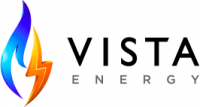What is Energy Efficiency?
Understand the Truth Behind This Misunderstood Concept
If you’ve ever looked for information on how you can lower your energy bill, you typically locate a two-pronged answer:
- Literally use less energy in your home; or
- Purchase appliances, devices, and materials to help your home use energy more effectively.
That first concept is called “energy conservation,” while the second is called “energy efficiency,” and this is the one you probably see more often as a solution to the size of your energy bill.
So, what exactly is energy efficiency? In this first installment of a multi-part series on the subject, we’ll discuss exactly what this concept is and what it means for you as an energy consumer.
Energy Efficiency in Theory
In terms of pure definition, the principle of “energy efficiency” seeks to use less energy to create the same amount of energy. We admit - that sounds like a contradiction on the surface. How can you use less energy why still generating the same amount of energy as you once did?
For example, an energy efficient LED light bulb actually does use less energy to generate the same amount of light. It accomplishes this by not letting off so much wasted heat energy and because you don’t have to pump as many electricity through the bulb to create the equivalent wattage and brightness. You can lower your energy bill with this technology if it’s used correctly – i.e. used less.
That light bulb scenario gets at the heart of how and why people misunderstand energy efficiency as a concept. The technology driving such efforts don’t necessarily compel you to use less energy, per se. Instead, it helps you use energy in a less wasteful way, which means you could possibly use less of it.
It really is all about that “could.”
Energy Efficiency in Practice
All of that being said, true energy efficiency in the home really does begin by installing devices that use less energy to generate the same amount of energy as before. NRDC research shows that the average US household can lower their annual utility bills by up to $500 with energy-efficient appliances. And ENERGYSTAR reports a reduction of 5,000 pounds of greenhouse gas emissions per household with the technology.
You want to use LED light bulbs that require less electricity to generate the same amount of light as incandescent light bulbs. It’s good to use energy efficient washer, dryers, dishwashers, and refrigerators that use less energy than ever before to do their jobs.
What matters is that you take advantage of the opportunities provided by energy-efficient devices and don’t continue to use energy as much around the home. As in, even though you installed new-school light bulbs throughout your home, you should still probably turn them off when you’re not using them. This concept is called energy conservation, and it’s an important one to remember, even as you use new technology.
Have Questions? Call Us!
Our representatives are waiting to help you Mon - Fri 7:00 am to 6:00 pm CST
Sat 10:00 am to 3:00 pm CST
